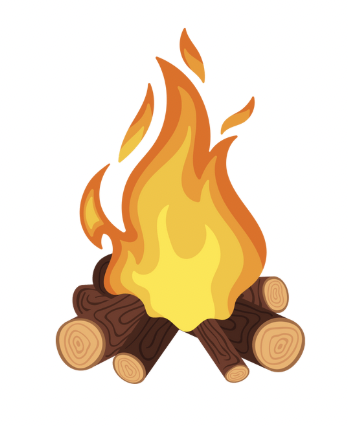As the sun sets a little earlier and evenings turn crisp, there’s nothing cozier than gathering around a backyard fire pit with friends and family. Whether it’s s’mores with the kids or wine by the flames, fire pits and patio heaters have become fall favorites for extending outdoor living into the cooler months.
But before you light that first flame, it’s important to make sure you’re not just creating warmth but also staying protected. Fire features come with real risks that many homeowners don’t consider until there’s an accident or insurance claim.
Here’s what you need to know to enjoy your backyard fire safely and responsibly with the right insurance coverage in place. 
Are Backyard Fire Pits Covered by Homeowners Insurance?
In most cases, yes your homeowners insurance will provide some coverage for fire pits, chimineas, or patio heaters. However, coverage depends on how the fire started, where it spreads, and whether you were following safety guidelines.
Typically covered:
- Fire damage to your home, deck, or fence
- Personal property damaged by fire (e.g., patio furniture)
- Liability claims if a guest is injured due to the fire
Not covered or limited:
- Damage caused by negligence or improper use
- Fires that spread due to local code violations
- Unpermitted or illegal fire pit setups
Bonus Tip:
Always let your insurance agent know if you’re installing a permanent fire pit or gas line—this may need to be added to your policy or increase your coverage needs.
Fire Pit Safety = Fewer Claims
Insurance helps when things go wrong but prevention is the best protection. Here are a few essential safety tips to reduce the risk of fire damage or injury:
- Keep fire pits at least 10–15 feet away from your home, deck, shed, and trees
- Never leave a fire unattended and always extinguish it fully before going inside
- Use a spark screen or safety barrier around open flames
- Only burn dry, seasoned wood (no trash, leaves, or construction debris)
- Keep a fire extinguisher, hose, or bucket of water nearby at all times
- Supervise kids and pets closely—accidents happen fast
- Use outdoor heaters on flat, non-flammable surfaces and never under awnings or inside tents
Bonus Tip:
Some local municipalities have restrictions on open flames so check your local fire codes to avoid fines or coverage issues.
What If a Guest Gets Hurt? Understanding Liability Coverage
If someone trips near the fire pit, gets burned, or suffers smoke inhalation, you could be held liable even if it was an accident.
Your homeowners liability coverage typically includes:
- Medical expenses
- Legal defense costs
- Settlements or judgments
Bonus Tip:
If you regularly host gatherings or have a fire feature in a tight backyard, you might consider an umbrella policy for additional liability protection beyond your base limits.
Checklist: Are You Covered for Outdoor Fires?
- Fire pit or heater is placed safely and used properly
- You’re following local ordinances and fire codes
- Homeowners insurance is up to date and includes adequate property and liability limits
- Umbrella insurance considered for extra protection
- You’ve told your agent about any permanent outdoor fire installations
